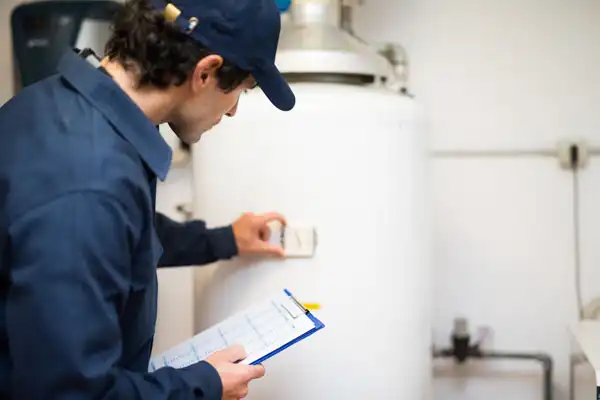
Hot and warm water is crucial to everyday living for most households. From showers and baths to hand washing, cooking, and doing laundry, water of varying warmth comes to the rescue again and again. However, the engine driving the entire operation — your water heater — has a finite lifespan. While you can extend the life of your unit with proper maintenance, there will come a day when you need to replace your old hot water heater with one that can keep up with your needs. Here, we’ll go over the major warning signs it’s time for “out with the old, in with the new” — and how professional water heater services can help. Your Hot Water Heater Is Old Much like your vehicle or other household appliance, nothing lasts forever; and water heaters are no exception. Most water heaters have an average shelf life of 8-10 years. While the upper portion of this range is when replacement is typically recommended, the actual need to make an upgrade could arise before. Not quite sure how old your water heater is? Check out the serial number listed on the manufacturer’s sticker and usually found on the upper half of the water heater tank. This number won’t list the date. The first letter is code for the month of the year. For example, A would be January, B February, and so on and so forth. The numbers following the letter are the last two digits of the manufacture year. Rusty Water or Inlet Valve Steel is renowned for being a strong material, although it’s not impervious to rust. When corrosion grabs hold of a steel surface, it spreads slowly, eating away in certain spots. When it comes to water pipes and steel tanks, rust is an indicator of oncoming leaks. However, even then, it can be challenging to determine whether rust is coming from the water heater or the pipes that are hooked up to your faucet. If rust appears in hot water from your faucets, there’s a good chance you have a rusty water heater. If you notice rust around the water inlet or pressure relief valve of the tank, rust has likely also taken hold inside of the heater. If tap water looks rusty, your pipes could be the culprit. Strange Noises If your hot water heater is trying to tell you something, make sure you listen up! As water heaters age, rumbling sounds will begin emanating louder and louder as the tank heats water. These sounds can be a result of sediment buildup, which can lead to inefficiency and accelerated damage. The tank should be flushed annually; doing so drains sediment from the bottom of the tank. However, if the tank still makes noise once sediment is flushed, there are likely more severe problems lurking under the surface. Creaking or rumbling headers, despite periodic flushing, are on the fast-track to a crack or leak that compromises the whole system. Leaks As a water heater approaches the end of its life expectancy, you might see water pooling on the floor surrounding the tank. Depending on where it’s located, this could lead to extreme property damage. Leaks are often caused by expansions to the metal in the tank, and when the metal expands at the height of each heating cycle, small amounts of water find their way through formed gaps and fractures. Lack of Hot Water A misadjusted thermostat or a damaged heating element can lead to a lack of hot water and does not necessarily mean replacement is in order. However, if you have a tank that is too small for your home’s size, getting a new hot water heater altogether is the best solution. Additionally, if there are more people living in your home than there were when it was first installed, the demands of the household could exceed the limits of your hot water heater. Wondering If Your Water Heater Needs to Be Replaced? Not sure if it’s time to replace your water heater? Partner with trusted specialists! If you’re running into trouble with your water heater, our technicians can find the root cause of the problems and make informed recommendations when it comes to getting a new unit that will deliver on energy efficiency — such as a tankless water heater. For more information about water heater installation in Lawrenceville, GA, or the surrounding communities, reach out to our team today!









